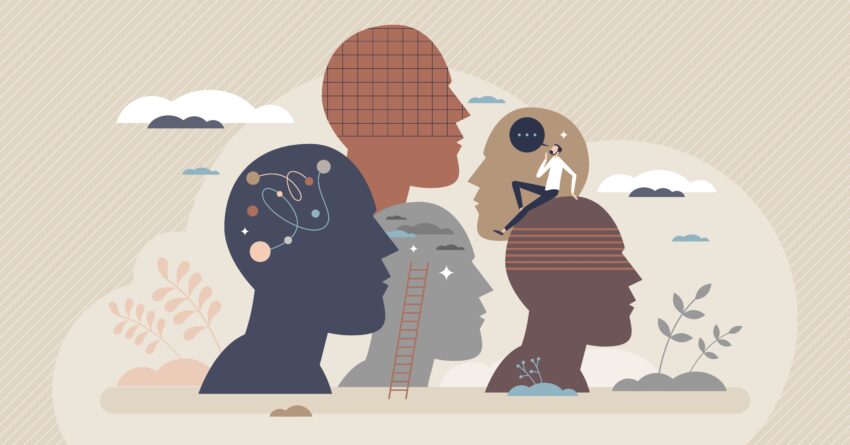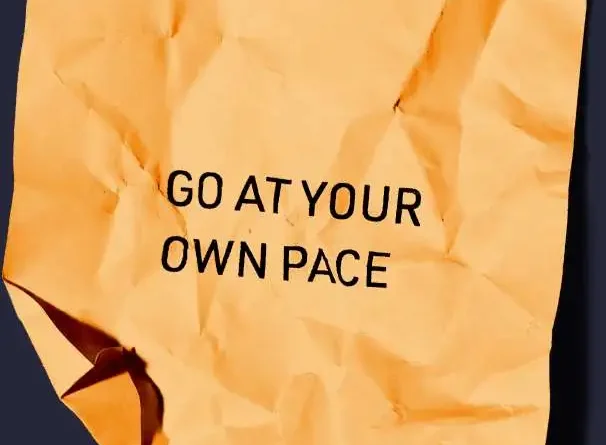Do I have OCD?
September 28, 2022

You’re leaving the house and wait – did you turn off the stove? You just have to go back and check or else the house may burn down. Ok, you checked… the stove is off and now you can leave the house. But wait – did you really turn the stove off? Maybe you just need to go back and check one more time to make sure. You may question if you are experiencing OCD, but what really determines an OCD diagnosis? In reality, double-checking that the stove is off is not enough to suggest an OCD diagnosis. However, if these thoughts and behaviors are impacting your life functioning, you may consider if OCD is a possibility.
For those who do have the disorder, the symptoms of OCD can feel extremely debilitating, and the disorder can also look different for many. For some, it may involve needing to check the rearview mirror in the car a certain amount of times or else a family member may die. For others, it may be pulling out all the hair on their head and looking for wigs to hide the hair loss. The symptoms that determine OCD vary on a large spectrum and may take a while before those who struggle with the disorder actually notice they are struggling and seek out help. Continue reading for more information on the symptoms that determine OCD, different diagnoses, and what you can do if you think you or a loved one may have the disorder.
What is OCD?
Obsessive-compulsive and related disorders (OCD), as defined by the DSM-5, is characterized by the presence of obsessions and compulsions. Obsessions are recurring thoughts that may be intrusive and unpleasant, while a compulsion is the behavior or mental act that follows an obsession. Usually those with OCD perform a behavior (compulsion) in order to soothe the anxious, negative thoughts (obsessions). The behaviors may also involve rigid rules, so the person “has” to perform the behavior or else the feared belief will occur. Having OCD can be incredibly debilitating and impair one’s ability to function in daily life.
What causes OCD?
Environmental stressors, such as traumas, are a large factor in why OCD develops, although there does also seem to be a genetic predisposition. Usually those who struggle with OCD may also have other pathologies in addition to the disorder. There is not one singular cause of OCD, but a multitude of factors that may contribute to its onset. The development OCD is ultimately a result of an individual feeling unsafe in their past or current environment and this may be an individual’s best ability to cope in their given circumstance.
What are the different kinds of OCD?
General OCD:
An individual is experiencing persistent worrying thoughts and/or images that may feel intrusive and performs a repetitive behavior and/or mental act as a result. The behavior may be related to the worrying thoughts or it may be unrelated. For example, an individual may repeatedly wash their hands with a fear that if they don’t perform this hand-washing ritual they will become significantly ill – in this case, the obsession and compulsion are related. However, an individual may also feel the need to flicker a light switch ten times or else a loved one may die – this would be an example of an obsession and compulsion that are unrelated.
OCD – Related Disorders:
The related disorders that fall under the umbrella of OCD include hoarding disorder, body dysmorphic disorder, and body-focused repetitive behaviors.
• Hoarding Disorder – This disorder involves accumulating possessions to the extent in which the individual’s living area becomes significantly congested with clutter and impacts the individual’s ability to function. The individual has difficulty discarding possessions regardless of their actual value.
• Body Dysmorphic Disorder (BDD) – Individuals with this disorder may become fixated on perceived flaws in their appearance that are not apparent or noticeable to others. This can be a fixation with i.e., muscle size, weight, and/or other aspects of the body related to physical appearance.
• Body-Focused Repetitive Behaviors (BFRBs) – In this specific subset of OCD disorders, the compulsions may involve performing a ritualistic self-harming act in order to soothe the negative thoughts or serve as a distraction from the thoughts. These behaviors include trichotillomania (hair pulling) in which individuals repeatedly pull-out hair resulting in significant hair loss, and excoriation (skin picking).
Why is OCD awareness important?
Those who suffer with the symptoms of OCD often feel incredible amounts of shame. They may fear that others will find out about their thoughts/behaviors and, as a result, they go through great lengths to hide their OCD. Due to this fear of being exposed, those with OCD will struggle in silence and don’t seek out the help that is often needed and this isolation may also cause OCD symptoms to worsen. It is important that those with OCD feel understood so that they seek out adequate treatment.
How can I help someone with OCD?
It is important that those struggling with OCD be supported and provided a safe environment where they can feel free from shame and criticism. Since individuals with OCD are inherently self-critical, it can be harmful to place additional pressure on them and expect that they need to stop the behaviors. Recovering from OCD takes time and the best way you can help is to be patient with the person and provide emotional support.
What should I do if I think I have OCD?
Coping with OCD and even recovering from the disorder is possible. For treatment, seek out a mental health professional. Different types of psychotherapy may be helpful in the treatment of OCD. Cognitive-behavioral therapy (CBT) can be useful in specifically targeting the maladaptive thinking patterns that trigger certain behaviors. Other therapies, such as psychodynamic therapy, can also be helpful in treating OCD especially if there is an underlying trauma. Lastly, remember to be kind to yourself. If you have OCD, you may be frustrated and even blame yourself for not being able to stop the thoughts/behaviors. While this cycle can be discouraging, know that you are not alone and SteadyNYC can help. If you or someone you know is struggling, please contact us.



